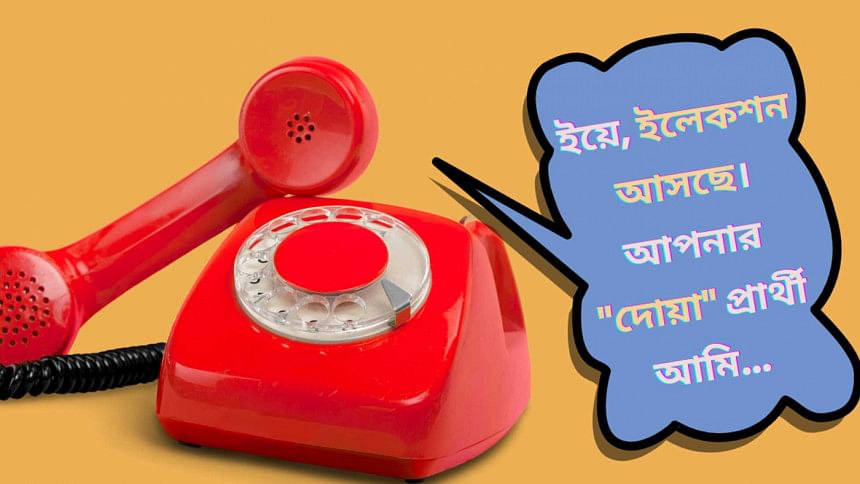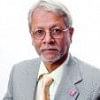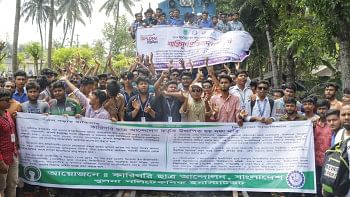To dua or not to dua?

You get a surprise phone call, not all have to be pleasant. According to this gentleman, although his voice was unfamiliar, you met him 10 years ago. All this time he had been keeping in touch with you through omuk friends. Therefore, he had quite the legitimate reason to seek your dua for an upcoming samity elections. There are several important reasons why people become religious; elections are way at the top. For the uneducated, dua means vote.
Most of us are glad that December comes and goes, not only because the cold wintry days bring misery to the poorest, but also because it marks the end of the busy election season. We shall be deprived of the cordiality of the candidates for the rest of the year. But unfortunately, a few elections overrun the year-end deadline; the excuse this time was the pandemic has several side effects; pleading phone calls and beseeching messages at unearthly hours are just a few that are not related to health.
Because you detest unknown numbers, another measure of irritation is calls from members of affiliated associations. They text you, woo you, not knowing that you are not a voter. For instance, if you are a member of the Jatiya Press Club, you are a Grade A target. You shall be implored by aspirants from Dhaka Union of Journalists (DUJ), Bangladesh Federal Union of Journalists (BFUJ), and possibly the Gaibandha Press Club. Crime, sports, court, diplomatic and district correspondents will knock you. Likewise, a Dhaka Club membership will make you a target of hopefuls from Narayanganj, Gulshan, Banani, Baridhara, and Uttara. That's about 10 calls and 15 messages in peak season.
As the polling day nears, there is desperation among the candidates. Phone calls and texts increase manifold. Notifications start coming at unearthly hours. Switching to "silent" is not an option. There could be an "emergency", and these are user rights. Why candidates need to disturb a voter with calls at polite times could be a topic for inter-school debate.
Posters, postcards and leaflets with beaming smile of the candidates (still unrecognisable to you) intrude the privacy of your home. You perhaps do not have the time to browse through false promises of most, penned in a manifesto, the acreage of which may shame parliamentary elections.
In some situations, candidates try to meet you. Covid gave us the excuse to avoid most of them. A few of the more enthusiastic, nay panicky, contenders may land up on your front door with gifts, such as a saree for bhabi and a punjabi for Bhai. You will be amazed at the innovative tactics they adopt.
One husband was rather apologetic, explaining that after his retirement this is what he does. There were his brother's chamber elections, followed by his bosom friend's association of ex-smokers, and now this spousal matter of grievous consequence. His wife was seeking a position in an association. My caller's better half lost, but they are still married, which goes to show he was losing sleep over nothing.
While a husband's love for his only half is understandable, an employee would canvass for his boss for an altogether different reason. One executive candidate was seeking office to serve his social club. Clearly, he was already too busy or pompous to call me himself. I explained to the office staff that his boss should call, if at all. I hope his promotion is not subject to the outcome of his boss's elections.
Not too long ago, I was enticed to become a long-distance sugar-haram. A courier, not the Baridhara-resident candidate, dropped a packet at our Dhanmondi gate. I was deeply saddened not being the only recipient of his amorous reach-out. The courier's van was carrying dozens of packets, according to our darwan bhai. Curiously I opened the packet to find three pieces missing out of the 12 laddoos. Not only did I not consume any of the delicacy, I refrained from going to the polling booth.
The money that candidates spend to coax voters in social elections can be used for welfare projects more effectively. After all, welfare of the community is their purpose of seeking a position of responsibility. Or is it?
It is understandable, although that does not make it right, that candidates seeking to be an elected guardian-member of a school committee spend like there is no tomorrow because of the advantages (and power) the position brings, and the importance among parents and the community. You will find election posters of a Motijheel school on a launch to Mathbaria, that's in Borishal.
While the mood is festive on the outside and love too is in the air, there is fierce war-like rivalry within. Family, friends and foes, neighbours and netizens, all do their bit to draw votes this or the other way. Some elections have led to speak-not relationships among the best of buddies. Some have rolled on to the court.
The price of democratic practice is steep. Here the winner takes all. The runner-up cannot be blamed for becoming philosophical, or nastily critical of the process. By the following sunrise, only the loser analyses the results, discovering that his friends were dissuaded from coming to the polls, that many voters were registered in the final hours, and all of them were from the winning block.
Often enough, the entire exercise of canvassing, casting, and counting of votes appear fruitless because an elected body does not always perform. In some committees, quorum is hard to find for several successive meetings. The committee becomes inoperative. Resolutions remain hanging in a divided house. There is no accountability, because they are "elected". What therefore is the point of wasting so much time and money, and forsaking one's ego at the altar of consensus.
Somehow, I feel that the entire system of election in clubs and societies, (and for heaven's sake, that too every year?), need to be thought from a more practical perspective. We are caught in a false belief of practising democracy, but have lost the trail to serve the community.
Since those elected skip their responsibilities, and are not accountable at all, in order to save both time and money, committees may be selected annually, or for longer periods, through lottery among interested candidates. Seeking consensus is a never-ending process. And, then, not any different from now, hope for the best. Resources thus saved could be used towards benevolent and development projects. Think about it!
Dr Nizamuddin Ahmed is an architect and a professor, a Commonwealth scholar and a fellow, Woodbadger scout leader, Baden-Powell fellow, and a Major Donor Rotarian.

 For all latest news, follow The Daily Star's Google News channel.
For all latest news, follow The Daily Star's Google News channel. 



Comments